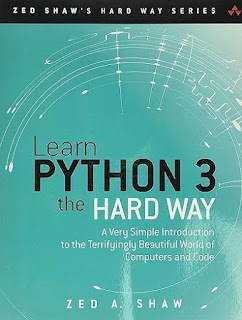If you're new to Python and want to learn it, there are some great books out there. Here are a few:
1. Python Crash Course by Eric Matthes
This book starts from the basics, teaching you about Python's elements, data structures, and more. It then guides you through creating projects like an Alien Invasion game and a web application using Django.
2. Head-First Python, 2nd edition by Paul Barry
This book uses a visually engaging format with lots of examples. It covers topics like lists, modules, errors, and file handling through a project of building a website for a coach. It's more beginner-friendly than some other books.
3. Invent Your Own Computer Games with Python, 4th edition by Al Sweigart
This book focuses on building classic games while teaching Python. It starts with simple scripts, gradually introducing concepts like functions, loops, and dictionaries, through projects like Hangman, Tic-Tac-Toe, and game graphics using PyGame.
4. Think Python: How to Think Like a Computer Scientist, 2nd edition By Allen B. Downey (O’Reilly, 2015)
How to Think Like a Computer Scientist by Allen B. Downey: This book takes a serious approach to teaching Python. It's more linear and covers a wide range of Python topics, including some advanced areas like operator overloading and analysis of algorithms.
5. Effective Computation in Physics: Field Guide to Research with Python, by Anthony Scopatz, Kathryn D. Huff (O’Reilly, 2015)
Field Guide to Research with Python by Anthony Scopatz and Kathryn D. Huff: This book not only teaches Python but also covers related topics like the command-line, data analysis, debugging, and software deployment. It's great for scientists and engineers.
6. Learn Python 3 the Hard Way, by Zed A. Shaw (Addison-Wesley, 2016)
This book makes you type in all the code, do exercises, and find solutions to problems. It's structured with over fifty exercises, each building on the previous, and covers various Python features. It's a bit challenging but rewarding.
Each of these books has its own style and approach. Depending on your learning preferences and what you want to achieve with Python, one of these might be a good fit for you.






0 comments:
Post a Comment